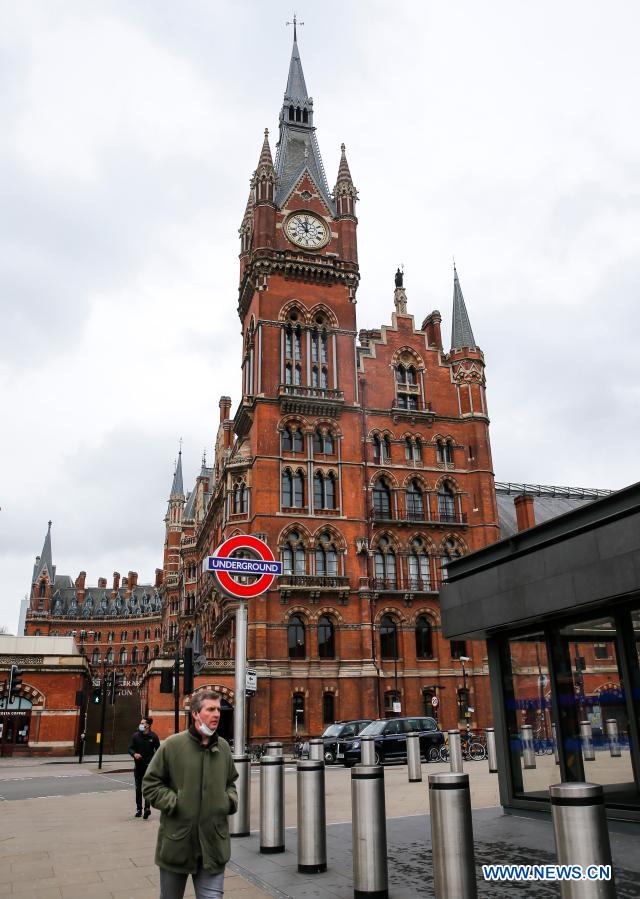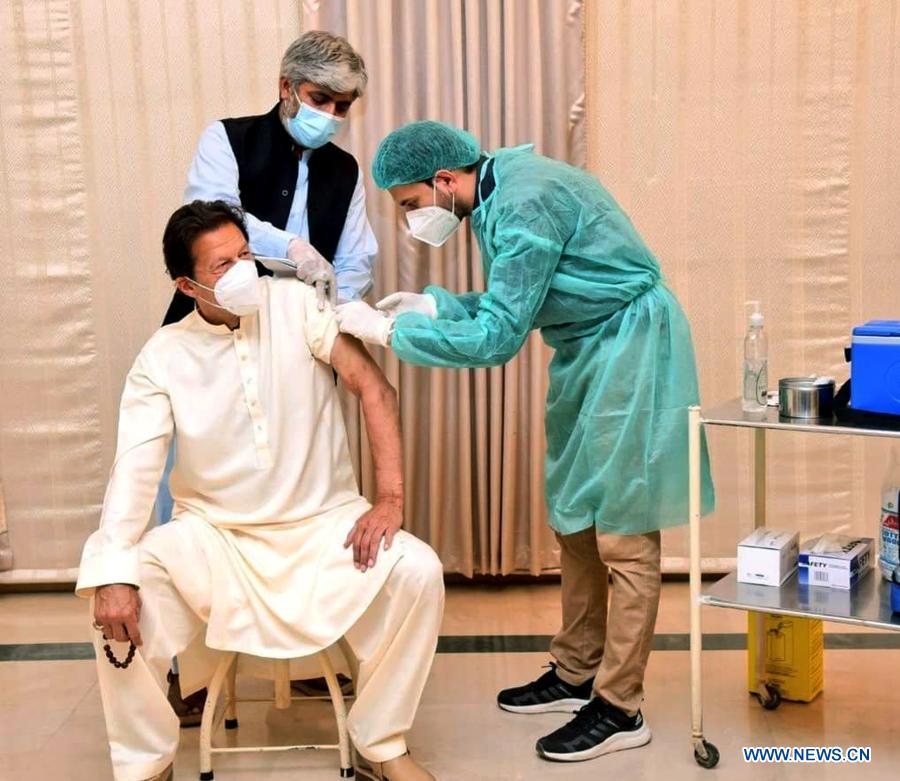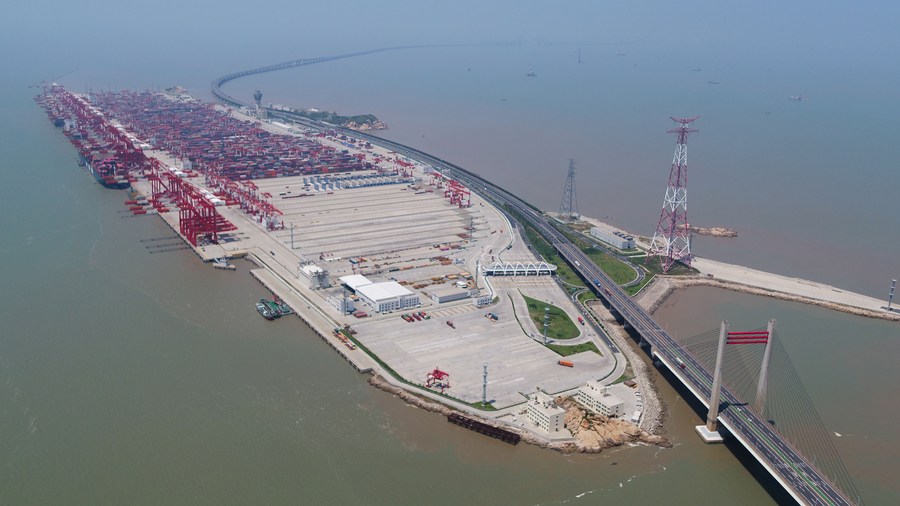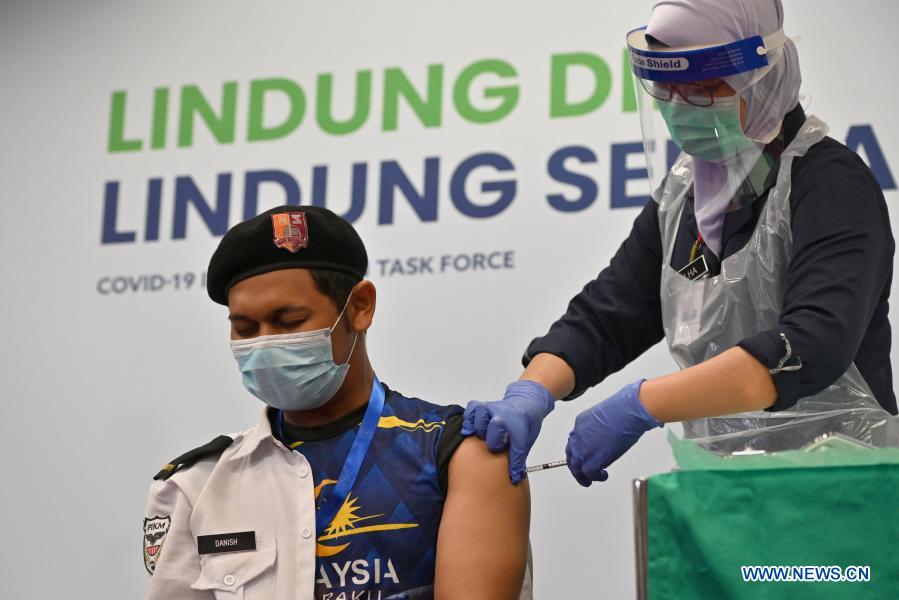
People walk in central London, Britain on March 18, 2021. The British government has announced that more than 25.2 million people have now had their first dose of a coronavirus vaccine. According to the British Department of Health and Social Care, almost 50 percent of all British adults have received a jab. (Xinhua/Han Yan)
LONDON, March 18 -- Britain's Medicines and Healthcare products Regulatory Agency (MHRA) confirmed Thursday that the benefits of the vaccine in preventing COVID-19 far outweigh the risks, calling on people to continue to receive the AstraZeneca COVID-19 vaccine.
Following a rigorous scientific review of all the available data, the regulator said that "the available evidence does not suggest that blood clots in veins (venous thromboembolism) are caused by COVID-19 Vaccine AstraZeneca" developed by pharmaceutical and biotechnology company AstraZeneca and the University of Oxford.
The statement came after a growing number of countries in the European Union suspended the use of the AstraZeneca vaccine as a precautionary measure, based on reports of blood clots in persons who had received the vaccine.
The MHRA said that it made the conclusion after having a detailed review of report cases as well as data from hospital admissions and GP (general practitioner) records.
This has been confirmed by the British government's independent advisory group, the Commission on Human Medicines, whose expert scientists and clinicians have also reviewed the available data, said the regulator.
As to media reports on Thursday saying a British man died and four suffered blood clotting after receiving AstraZeneca vaccine, the MHRA said a further, detailed review into the five cases "is ongoing".
The five men, aged between 19 and 59, suffered from Cerebral Venous Sinus Thrombosis (CVST), said the Telegraph newspaper.
"This has been reported in less than one in a million people vaccinated so far in the UK, and can also occur naturally -- a causal association with the vaccine has not been established," said the MHRA.
"Our thorough and careful review, alongside the critical assessment of leading, independent scientists, shows that there is no evidence that that blood clots in veins is occurring more than would be expected in the absence of vaccination, for either vaccine," said Dr June Raine, MHRA chief executive.
"We have received a very small number of reports of an extremely rare form of blood clot in the cerebral veins occurring together with lowered platelets soon after vaccination. This type of blood clot can occur naturally in people who have not been vaccinated, as well as in those suffering from COVID-19," said Raine.
The MHRA's advice remains that the benefits of the vaccines against COVID-19 continue to outweigh any risks and that the public should continue to get their vaccine when invited to do so.
Meanwhile, the European Union's medicines agency, the European Medicines Agency (EMA), announced in Amsterdam on Thursday that the AstraZeneca coronavirus vaccine is "safe and effective" to use following an investigation into reports of blood clots in a small number of recipients.
"Our scientific position is that this vaccine is a safe and effective option to protect citizens against COVID-19," said the head of the EMA, Emer Cooke.
The EMA said the benefits outweigh the risks and the vaccine is not linked to an "overall risk" of blood clots.
The World Health Organization has said that there is no evidence to suggest the vaccine was responsible for the possible blood clots and that the benefits of immunization far outweigh the potentially small risk.
The British government has announced that more than 25.2 million people have now had their first dose of a coronavirus vaccine. According to the British Department of Health and Social Care, almost 50 percent of all British adults have received a jab.
Experts have warned Britain is "still not out of the woods" amid concerns over new variants and the risks of the public breaching restriction rules.
COVID-19 has killed nearly 126,000 people in Britain, the highest toll in Europe.
To bring life back to normal, countries such as Britain, China, Germany, Russia and the United States have been racing against time to roll out coronavirus vaccines.













